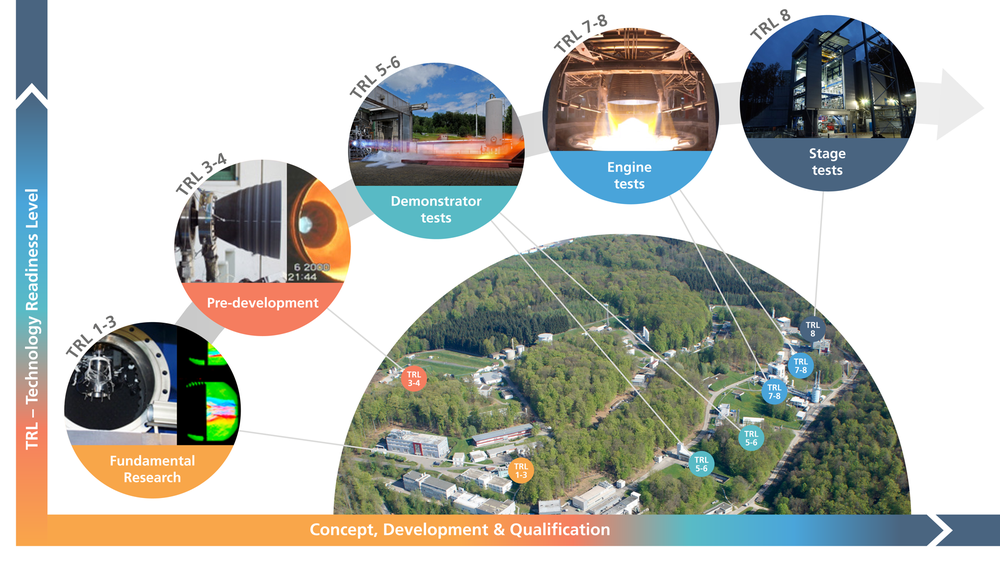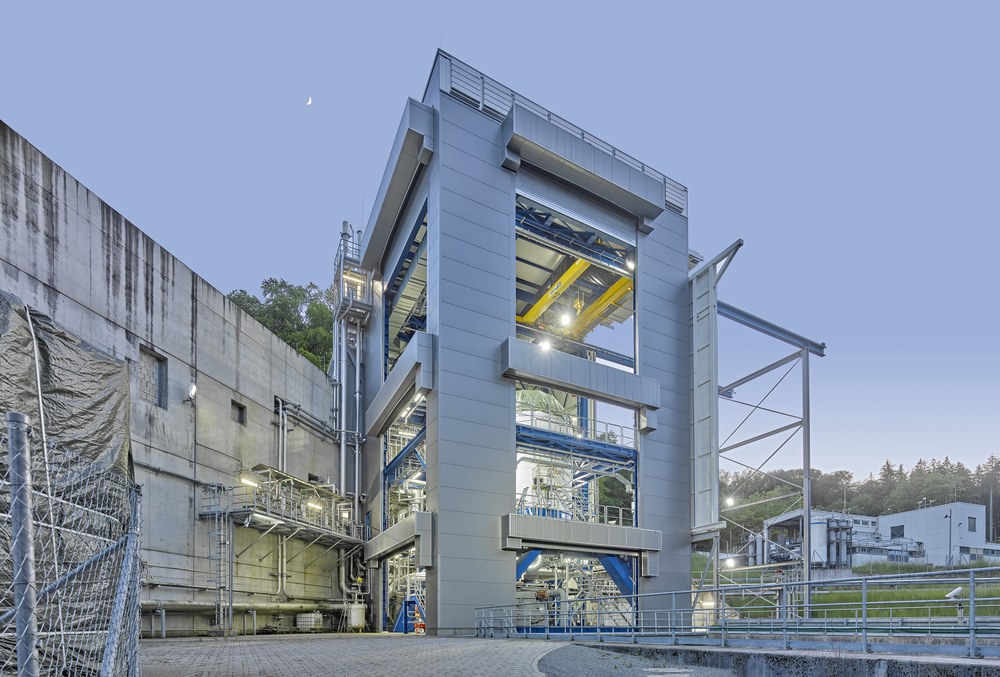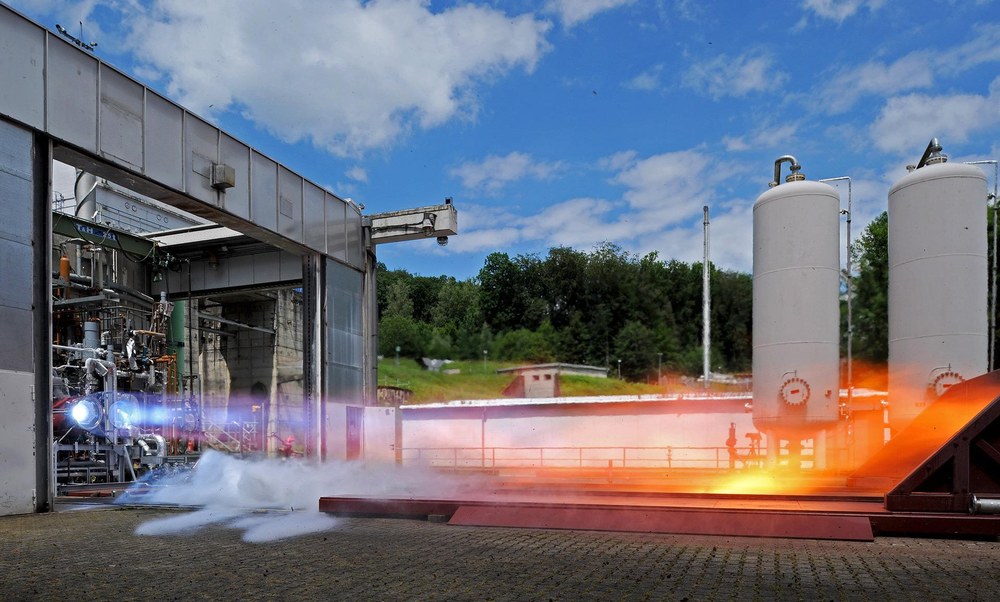Prometheus
The Prometheus® program of the European Space Agency (ESA) aims to develop a demonstrator for a reusable 100 tons thrust class engine for future generations of reusable and environmentally friendly European launch vehicles.
With the FLAME (Future LAMpoldshausen Exploitation) project, DLR is developing the foundations for the comprehensive modernization and digitalization of the engine test stands as part of an ESA programme initiated by the German Space Agency at DLR. In this way, it is further expanding the strategic importance of the Lampoldshausen site for European space transportation. The focus is primarily on the increased standardization of interfaces, the use of Artificial Intelligence (AI) for test bench applications and digitally adapted structures and processes. The conditions for this are unique at DLR Lampoldshausen, as an extensive and high-quality database from decades of test bench operation forms the basis.
In addition to the European launcher Ariane, microlaunchers are increasingly supplementing the range of launch options for loads of different weights. Microlaunchers are often developed by young companies and have a much shorter development time. With extensive expertise and a flexible test infrastructure, DLR is ready to support these processes and drive forward technological developments.
Particular emphasis is placed on the promotion of young scientists. To make this possible, the M11.5 test field was established in 2013. Students can test their self-developed rocket engines under expert supervision as part of the DLR-STERN program. The program also promotes the spin-off of start-ups.
A prerequisite for the successful further development and application of hydrogen technologies is a modern test infrastructure. This is being established in the Zero Emission – Hydrogen Site Lampoldshausen and HYDROGENIUM projects and strengthens DLR in Lampoldshausen in its role as a technology and development partner. Hydrogen-based systems and components such as compressors, tanks or micro gas turbines can be tested and further developed at several test locations. Thanks to its modular design, the test infrastructure can be flexibly adapted – depending on the order and research project.



